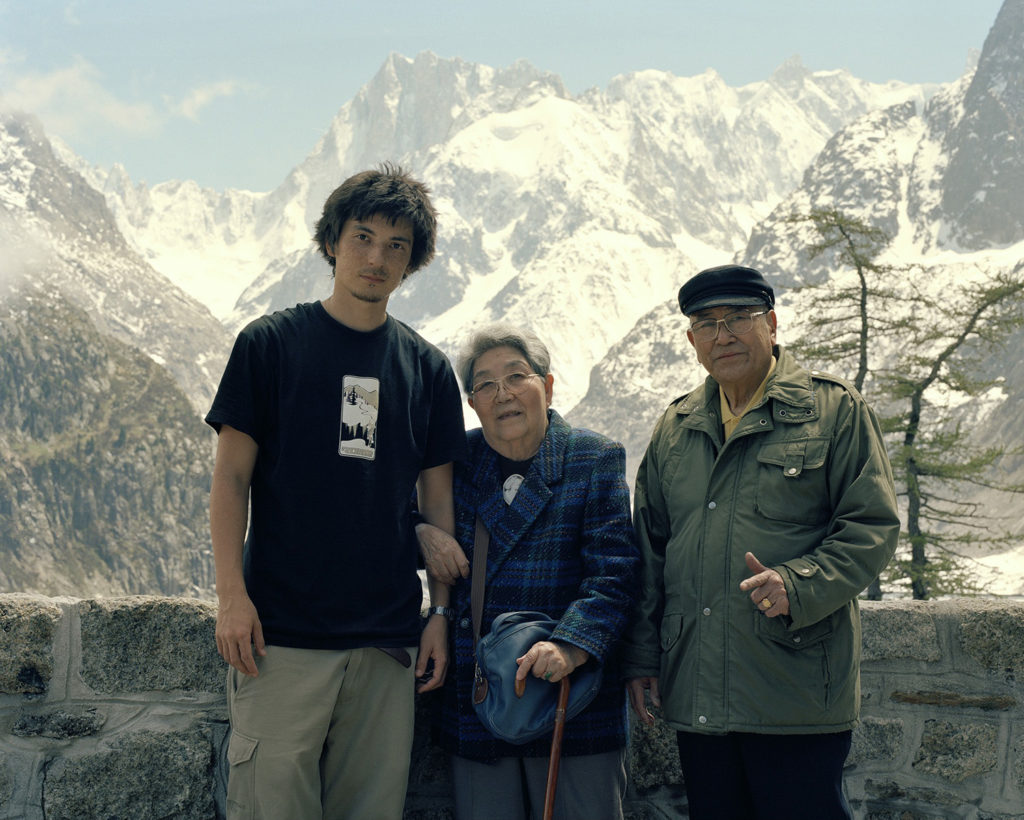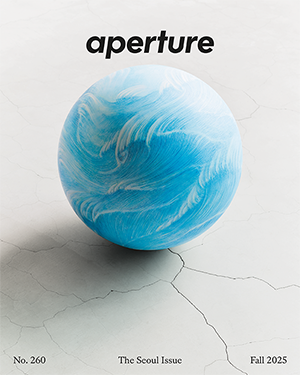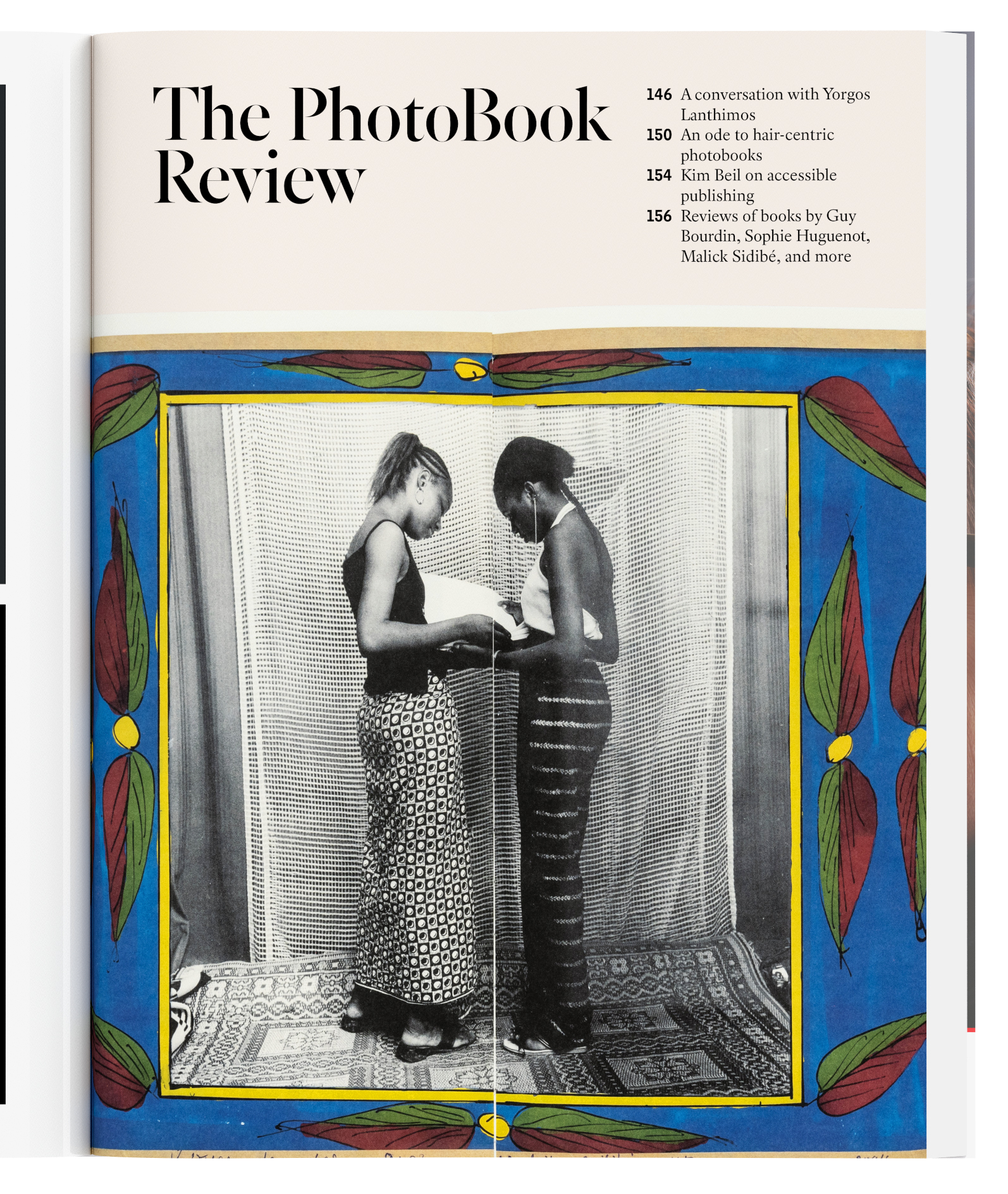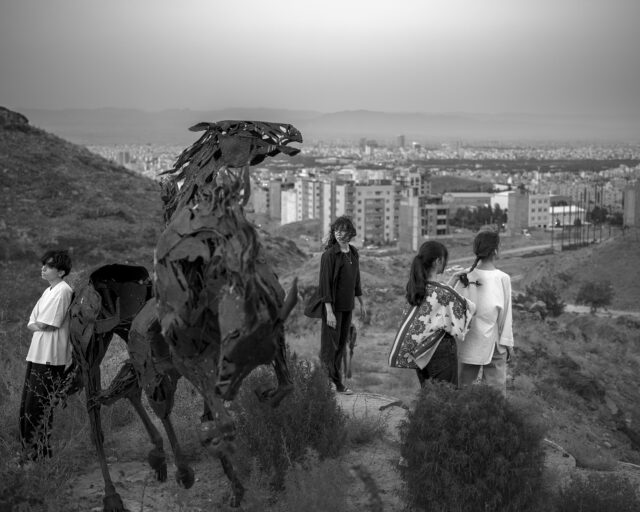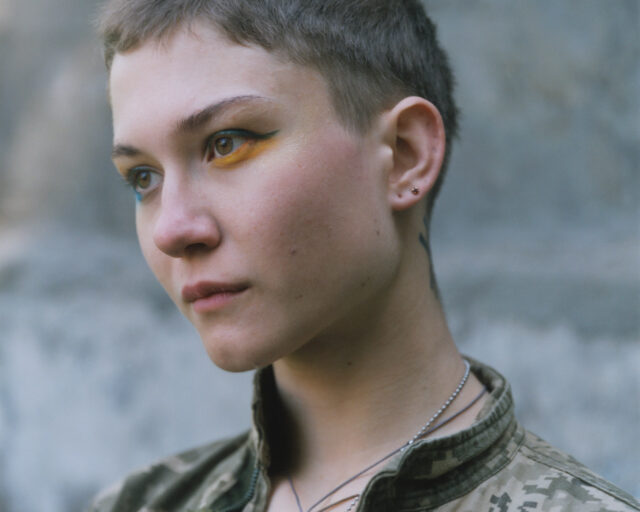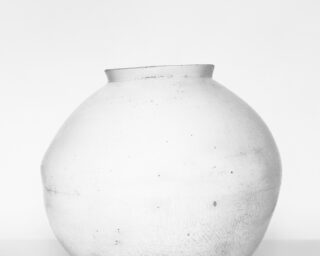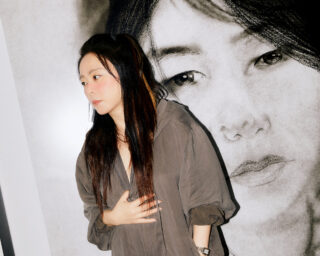2010 Portfolio Prize Winner: David Favrod
Courtesy of David Favrod
David Favrod was born in Japan to a Japanese mother and a Swiss father and raised in Switzerland. Though he was brought up far from Japan, he was exposed to Japanese culture through his mother, the stories of his grandparents, and his own travels there. When, at eighteen, the Japanese Embassy denied him dual citizenship, the rejection inspired him to explore his identity deeper. He writes, “I usually find it hard to speak about myself. I always stumble in the paradoxes of, ‘Who am I?’”
In his series Gaijin—which means foreign or alien—Favrod imagines his own personal Japan within Switzerland, playing on visual clichés of Japanese culture and recreating scenes from his childhood memories of Japan. Though many of the images―like the Sumo Wrestler in a ring of fire and the miniature Mount Fuji made of Favrod’s bedspread―are playful, they are serious in their play. His self-portrait in a bathtub, for example, in which scales are painted on his body, makes a witty reference to the classical Japanese imagery of the koi fish. Here Favrod embodies the koi, which swims upstream and symbolizes a way forward against the current and other obstacles. The current, in this case, is created by the motion of his body awkwardly contained by the very un-Japanese tub, as well as his breath as he blows bubbles underwater. Thus, Favrod paradoxically becomes both the koi swimming against the current and the current itself. In this way, the image comments both on his identity, caught between two cultures, and on the artistic process of play and its ability to hold such paradoxes up for inspection.
We see this kind of push and pull between worlds—where Favrod oscillates between a place that is foreign and familiar, imagined and remembered—again and again in the work. Favrod discovers Japan in the Swiss landscape where sculpted trees, characteristic in Japanese gardens, form dark shadows against the light of a stereotypical Alpine background. Just as the trees in a traditional Japanese garden are cultivated using special techniques meant to bring out their essential character, Favrod too has fashioned the work and his character in his own contemporary Swiss world. Indeed, in a later picture, he and his Japanese grandparents replace the trees in front of a stock view of the Alps. And just as Japanese garden design utilizes the basic principles of reduced scale, symbolization, and borrowed views, so too does Favrod’s photographic exploration of his identity, portrayed like a private Japanese garden continually cultivated within the larger foreign world.

